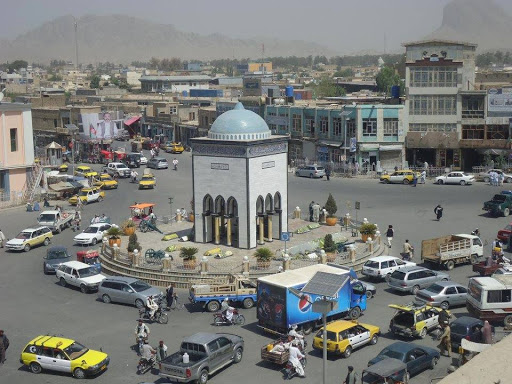RASC News Agency: Local sources have reported that at least 12 members of Tehrik-i-Taliban Pakistan (TTP) and the Baloch insurgent movement were killed in an airstrike in Kandahar, southern Afghanistan. According to eyewitnesses and insider sources, the strike targeted individuals departing from a joint meeting, raising questions about the security and coordination between foreign militant groups on Afghanistan’s soil. The casualties, including both fatalities and injuries, were reportedly transferred to a Taliban-controlled military compound shortly after the attack. Sources claim that several senior commanders from the two groups were residing in Aino Mina Township, a well-known area in Kandahar allegedly housing high-ranking figures affiliated with extremist factions.
Following the incident, local residents shared videos and photographs with the media, reporting the sound of heavy gunfire and explosions reverberating through the city shortly after the strike. “We heard a powerful blast early in the morning, followed by gunfire,” one resident told RASC, requesting anonymity due to security concerns. However, Taliban officials have categorically denied the occurrence of any airstrike. In a statement released by the Taliban police command in Kandahar, the incident was attributed to the accidental detonation of old, unstable munitions stored in a container across from the Directorate for Counter-Narcotics.
Asadullah Jamshid, spokesperson for the Kandahar Taliban police, claimed that a number of Taliban personnel sustained injuries but refrained from disclosing further details. He asserted that emergency response teams and security forces were swiftly dispatched to the scene to prevent further damage and maintain order. Despite this official account, several local and independent sources remain unconvinced. Earlier in the day, residents in central Kandahar had reported hearing a large explosion in the early hours of the morning, a claim that gained traction on social media as footage of the aftermath circulated widely.
Zabihullah Mujahid, chief spokesperson for the Taliban, reiterated the denial of any external attack, insisting the explosion resulted solely from the accidental ignition of old explosives. Yet, this narrative appears increasingly inconsistent with reports pointing to a targeted strike on foreign insurgents within Afghanistan’s territory. The presence of TTP and Baloch militants inside Afghanistan has long been a contentious issue, particularly for Pakistan, which has repeatedly accused the Taliban of harboring anti-Pakistan militant networks. If independently confirmed, the strike could signal growing regional impatience and a shift toward direct military intervention against cross-border militant threats operating under the Taliban’s watch.
This development not only exposes the Taliban’s fragmented control over armed groups within Afghanistan but also raises serious concerns over the country’s stability and sovereignty as regional actors consider taking matters into their own hands.






